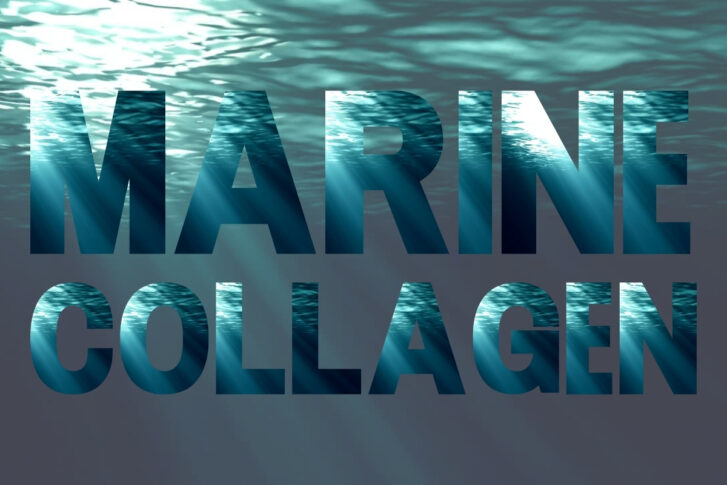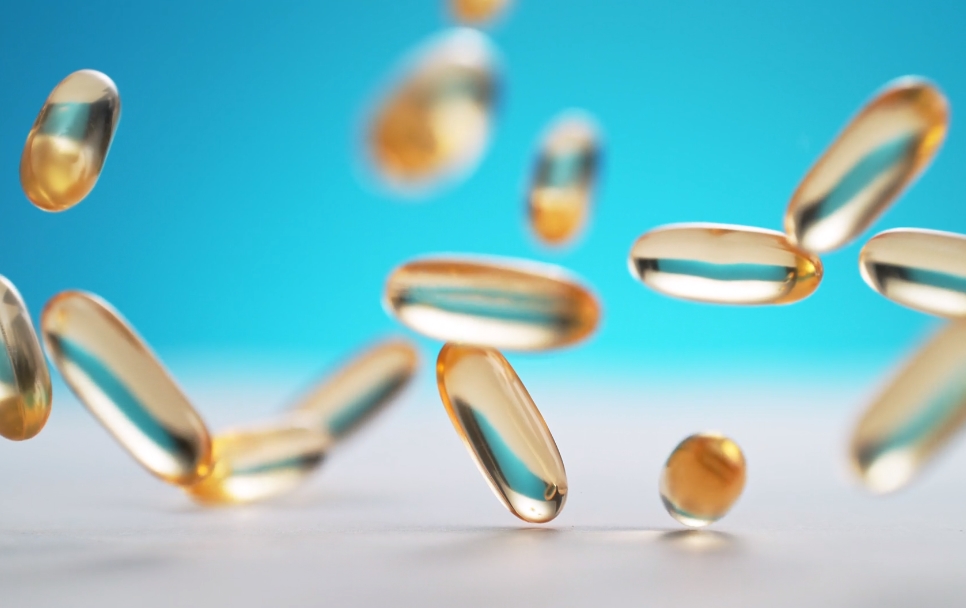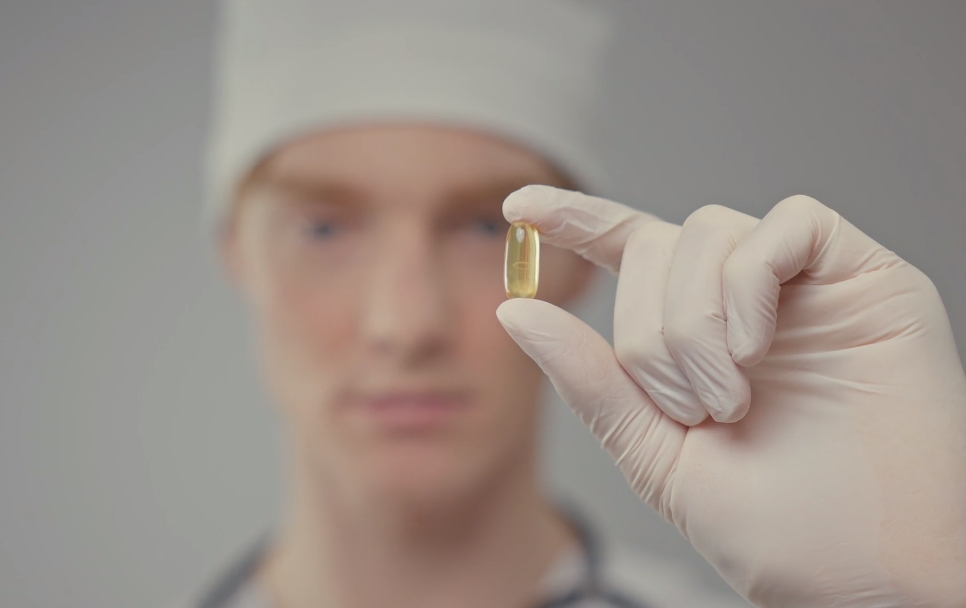Marine collagen is sourced from oceanic elements such as fish scales, skin, and bones. I’ve found this type to be particularly remarkable for its extensive health benefits, notably in improving the beauty of skin and hair, as well as in enhancing joint and bone health.
I’ve learned that marine collagen peptides are fundamental in supporting the structural integrity of various connective tissues in the body. The US market for marine collagen, which was valued at over $253 million in 2022, is on the rise, expected to expand significantly in the coming years.
This surge is an indicator of the growing popularity of collagen products and the widespread recognition of its benefits.
For all these reasons, I feel it is important to discuss this subject in greater detail.
Today, I will address numerous important things to know about marine collagen, like:
- Marine collagen source and composition
- It is more bioavailable than its bovine counterpart
- All the major benefits
- Potential side effects
Without further ado, let us begin.
Source and Composition of Marine Collagen
Marine collagen is primarily sourced from the depths of the ocean. It is extracted mainly from the skin of wild-caught cod, a sustainable choice considering these fish are not endangered. This sourcing method not only ensures the preservation of marine biodiversity but also provides a high-quality collagen source.
As a Type I, marine collagen stands out for its exceptional bioavailability, which is the highest among collagen sources. This means that once ingested, the body can absorb and utilize it more efficiently than other types. In contrast to marine variant, bovine, derived from cowhides, comprises both Type I and Type III.
While bovine is known for its benefits to joint health, marine is specifically lauded for its effectiveness in enhancing the beauty and health of skin, hair, and nails. This difference is partly due to the smaller size of the protein particles in marine, which significantly enhances its digestibility and effectiveness in the body.
The unique composition of marine collagen, with its high concentration of amino acids, makes it a highly sought-after ingredient in the beauty industry. .
| Aspect | Marine Collagen | Bovine Collagen |
|---|---|---|
| Source | Fish skin, primarily wild-caught cod | Cowhides |
| Collagen Type | Type I | Type I and Type III |
| Bioavailability | Highest among collagen sources | Lower compared to marine collagen |
| Protein Particle Size | Smaller, enhancing digestibility and effectiveness | Larger, affecting digestibility |
| Sustainability | Sustainable, non-endangered source | Depends on farming and sourcing practices |
| Suitability | Preferred for skin and beauty enhancements | Often used for joint and bone health |
What are the Benefits?
Marine collagen peptides are celebrated for their significant impact on skin health. Sometimes, the time of taking can have an effect on the benefits.
They play a crucial role in enhancing skin elasticity, hydration, and firmness. This is particularly beneficial for those concerned with aging signs like wrinkles and sagging skin.
The amino acids help in the formation of new collagen in the skin, promoting a more youthful and radiant appearance. Regular intake, as part of a balanced diet, can lead to noticeable improvements in skin texture and tone within 8 to 12 weeks.
This makes it a highly sought-after ingredient in the beauty industry, especially for those aiming for natural anti-aging solutions.
Bone Strength and Sports Recovery
Marine collagen goes beyond skin deep. It is also instrumental in promoting strong bones and aiding in sports recovery. The collagen peptides contribute to the bone matrix’s strength and resilience, making them essential for maintaining bone health, especially as one ages.
For athletes or individuals engaged in regular physical activity, it can support the recovery process. Its amino acids play a vital role in rebuilding and repairing tissues, which is crucial after intense physical exertion. This makes it an invaluable health ingredient for those looking to enhance their physical performance and recovery.
Joint Health
The benefits of marine collagen extend to joint health as well. It is known to provide the necessary nutrients to maintain healthy joints, potentially reducing the risk of joint-related issues.
While the research in this area is still ongoing, preliminary studies suggest that marine collagen may help alleviate joint pain and improve joint function, making it a promising supplement for those suffering from joint discomfort or conditions like osteoarthritis.
More research is needed to fully understand and validate its efficacy in joint health. Nonetheless, the current evidence points towards marine collagen being a beneficial addition for maintaining joint health and mobility.
The bioavailability and effectiveness of marine collagen are central to its growing popularity as a health supplement. As a Type I, it stands out for its remarkable bioavailability, which is about 1.5 times higher than that of bovine variant. This superior bioavailability means that when you consume marine collagen, your body can absorb and utilize it more efficiently, making it a more effective choice for those seeking the health benefits of collagen. This high bioavailability of marine collagen is largely due to the smaller size of its protein particles. These smaller particles are easier for the body to break down and assimilate, facilitating Marine Collagen Comparing Effectiveness with Dietsmoother digestion and more efficient absorption.[/su_highlight] Once ingested, it peptides undergo a process of breakdown into amino acids. These amino acids then circulate in the bloodstream, where they play a crucial role in various bodily functions. One of the most significant impacts of these circulating amino acids is their potential to signal the skin’s cells to ramp up new production. This signaling is vital in combating the natural decline of collagen in the body due to aging and other factors. By stimulating the production of new collagen, it peptides can significantly improve skin health, enhancing its elasticity and overall appearance. This process is not just beneficial for the skin but also contributes to the health of joints and connective tissues. The effectiveness extends beyond skin and joint health. Its role in supporting the overall structural integrity of the body, including the health of hair and nails, makes it a comprehensive health ingredient. Finally, bioavailability can depend on the form of your choice. The appropriate usage and dosage of marine collagen are pivotal in harnessing its full spectrum of benefits. Typically, the recommended daily intake of marine collagen varies between 2.5 grams and 15 grams. This range allows individuals to tailor their intake based on personal health goals and needs. For instance, someone focusing on skin health might opt for a different dosage than someone looking to support joint health. It’s essential to opt for high-quality products from reputable brands. These brands often use wild-caught fish as their source, ensuring the purity and effectiveness. Products sourced from wild-caught fish are generally considered superior in terms of nutritional value and are less likely to contain contaminants compared to farmed fish.
Before adding marine collagen into your routine, consulting with a healthcare professional is highly recommended. This is particularly important for individuals with specific health concerns, dietary restrictions, or allergies, especially to fish. A doctor can provide personalized advice, taking into account your health history and any potential interactions with existing medications or conditions. Regular and consistent consumption, following the recommended dosage, is key to observing tangible results. Over time, users often report noticeable improvements in the health and appearance of their skin, which may become more elastic and hydrated. Hair may also appear healthier, with increased strength and luster. Mixing these properly is another factor you should take into consideration. Of course, the procedure depends on the supplement you’re using. It wouldn’t be entirely the same in the case of biotin. When considering marine collagen as a supplement, it’s crucial to be aware of allergies and sensitivities, particularly to fish. Since marine collagen is derived from fish sources, individuals with fish allergies should avoid it to prevent allergic reactions. These reactions can range from mild to severe and can include symptoms like itching, hives, swelling, and in extreme cases, anaphylaxis. It’s always advisable to consult with a healthcare provider before starting any new supplement, especially if you have known allergies or sensitivities. For individuals with severe kidney disease or other conditions that necessitate careful monitoring of protein intake, the protein content in marine collagen needs to be considered. The kidneys are responsible for filtering waste products from the blood, and a high protein intake can increase the burden on these organs. Therefore, it’s important to consult with a healthcare professional to determine the appropriate amount of protein for your specific health condition and whether is it a suitable supplement for you. The effectiveness of marine collagen supplements, especially when compared to a well-balanced diet rich in adequate protein, is still under investigation. While it provides specific amino acids that are beneficial for skin, hair, and joint health, obtaining collagen and other nutrients from a varied diet might offer broader health benefits. Whole foods provide a complex array of nutrients, including vitamins, minerals, and antioxidants, that work synergistically to support overall health. As with any supplement, it’s important to view marine collagen as a complement to, not a replacement for, a healthy and balanced diet. Yes, Jennifer Aniston has publicly endorsed and shared that she incorporates marine collagen into her daily routine, highlighting its benefits for her hair, skin, and overall wellness. Marine collagen tends to be more expensive due to several factors: the sustainable sourcing of high-quality fish, the intricate process of extracting collagen from fish parts, and the purification process to ensure it’s safe and effective for consumption. Caffeine itself does not destroy collagen, but excessive caffeine consumption can potentially impact the skin negatively. It can lead to dehydration, which might affect the skin’s levels and overall elasticity. Moderate caffeine intake is generally not harmful to collagen. No, marine collagen and cod liver oil are different products. Marine collagen is derived from fish skin, scales, or bones and is primarily used for its protein and amino acids to support skin, hair, and joint health. In my experience, marine collagen has proven to be an invaluable health ingredient. Its high bioavailability, coupled with its sustainability and effectiveness, positions it as my preferred choice for naturally enhancing beauty and health. Observing the market’s growth, I am convinced that marine collagen will continue to be a significant player in the health and beauty industries.Bioavailability and Effectiveness
Dosage and Consumption
Potential Side Effects
Considerations for Kidney Health
Comparing Effectiveness with Diet
FAQs
Does Jennifer Aniston take marine collagen?
Why is marine collagen so expensive?
Does caffeine destroy collagen?
Is marine collagen just cod liver oil?
Final Reflections
Related Posts:



















